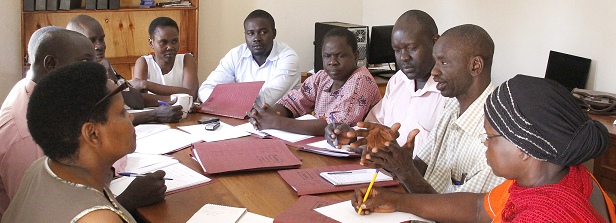Food security policy and governance
Food and nutrition policies

Governments, the corporate sector and the civil society in the field of food and nutrition security (FNS) have current expertise on the operational, policy and institutional changes needed to realize FNS. This expertise can ensure system change at local, national and global levels for improved FNS as well as economically and ecologically resilient food systems. Advanced understanding of inter-, multi- and trans-disciplinary approaches is important since many policy sectors influence the sustainability of food systems, such as water management, infrastructure, finance, education, etc. In this Knolwedge Portal topic, knowledge is presented on coherent and effective food policies at international, regional and national levels; international policies and their interaction with low- and middle-income countries and examples of prominent integral approaches.
